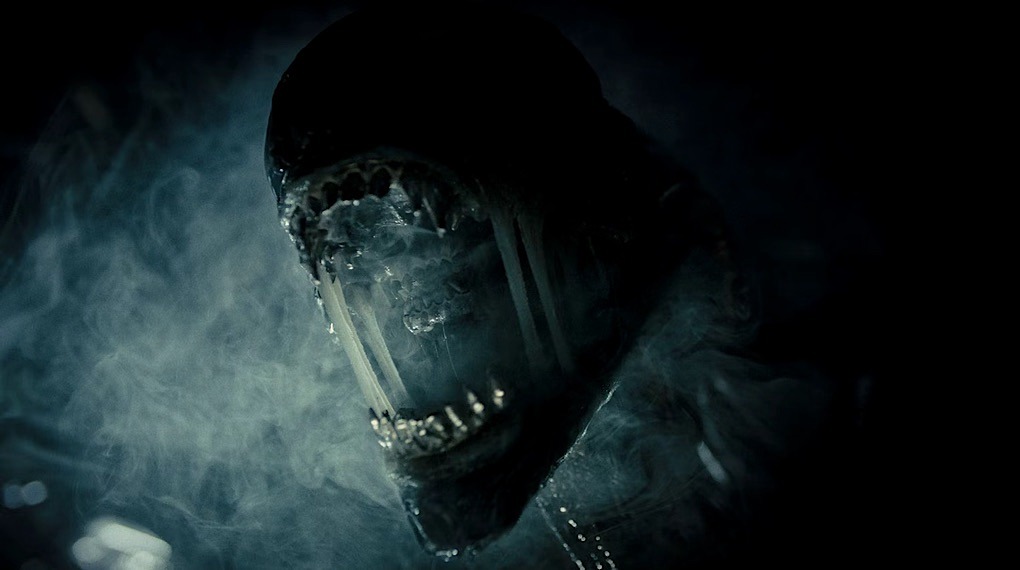Alien: Romulus, the latest installment in the iconic Alien franchise, is a masterful blend of classic horror elements and modern cinematic techniques. Directed by Fede Álvarez, the film pays homage to its predecessors while carving out its own unique space within the series. From the moment the film begins, it’s clear that Álvarez has a deep respect for the franchise, crafting a visual and narrative experience that feels both familiar and fresh.
One of the most striking aspects of Romulus is its use of special effects. The film seamlessly blends practical effects with CGI, creating a world that is as terrifying as it is believable. The Xenomorphs, which have long been the heart of the Alien franchise, are brought to life with an incredible attention to detail. Their movements are fluid, their presence is menacing, and their design remains as iconic as ever. The film’s use of lighting and shadow further enhances the horror, evoking the claustrophobic tension that made Ridley Scott’s original so effective. The environments, from the eerie corridors of the doomed spaceship to the industrial structures of our protagonist’s home planet, are meticulously crafted, immersing the audience in a world that is both thematically correct and deadly.
While the special effects and atmosphere are undeniably impressive, the real strength of Alien: Romulus lies in its characters, particularly the performances of David Jonsson as Andy and Cailee Spaeny. The chemistry between Jonsson and Spaeny is the strength of the film, bringing a depth to their characters that is often missing in the horror genre. Andy (played by Jonsson) is the designated android of this latest entry, a man burdened by the weight of his limitations but driven by a need to survive and protect Spaeny’s Rain. Jonsson’s portrayal is nuanced, capturing both the vulnerability and strength of his character. His performance anchors the film, providing an emotional core that resonates throughout the story.
Cailee Spaeny brings a raw intensity to her role as Rain, making her character’s struggles and triumphs feel real and earned. The dynamic between Andy and Spaeny’s character adds a layer of humanity to the film, reminding the audience that, despite the horrors they face, these are people with real emotional stakes and relationships. Their bond becomes the heart of the narrative, driving the story forward and giving the audience something to root for.
However, what truly sets Alien: Romulus apart from the earlier entries in the franchise that it is so desperate to mimic is its decision to take one specific risk, particularly in the final act. Without giving too much away, the film takes a strange and unexpected turn that will likely divide audiences.
This twist, reminiscent of something you might expect from some of the franchise’s stranger entries, adds a layer of complexity to the story that some may find intriguing while others may see it as a departure from the series’ roots. This portion of the movie introduces a series of bold narrative choices that challenge the expectations of what an Alien film “should be”.
This pivot is both unexpected and unsettling. It introduces elements that are at once familiar and alien, blending the horror of the Xenomorphs with a more psychological, almost surreal kind of terror. This shift in tone and style may not appeal to everyone, but it’s a testament to the film’s ambition. The result is a conclusion that is as thought-provoking as it is horrifying, leaving the audience with more questions than answers.
Despite the potential for controversy, Alien: Romulus remains a worthy addition to the franchise. It captures the essence of what made the original films so iconic while daring to venture into new, uncharted territory. The film’s pacing is tight, the tension is palpable, and the horror is relentless. Álvarez has crafted a film that is not only a love letter to the Alien series but also a bold statement on the future of the franchise. It’s a film that respects its roots while refusing to be confined by them, offering a new and thrilling experience for both longtime fans and newcomers alike.
In conclusion, Alien: Romulus is a film that succeeds on multiple levels. Its special effects are top-notch, its atmosphere is suffocatingly tense, and its performances are outstanding. The chemistry between David Jonsson and Cailee Spaeny adds emotional depth to the story, making their characters’ journey one worth following. The film’s final act doesn’t quite check all of the boxes in terms of the finale that you’re expecting, but it’s a bold and ambitious choice that pushes the boundaries of the franchise. Alien: Romulus is a welcome homecoming for the series, offering a nostalgic yet innovative experience that is sure to leave a lasting impression.
Rating: 8/10



